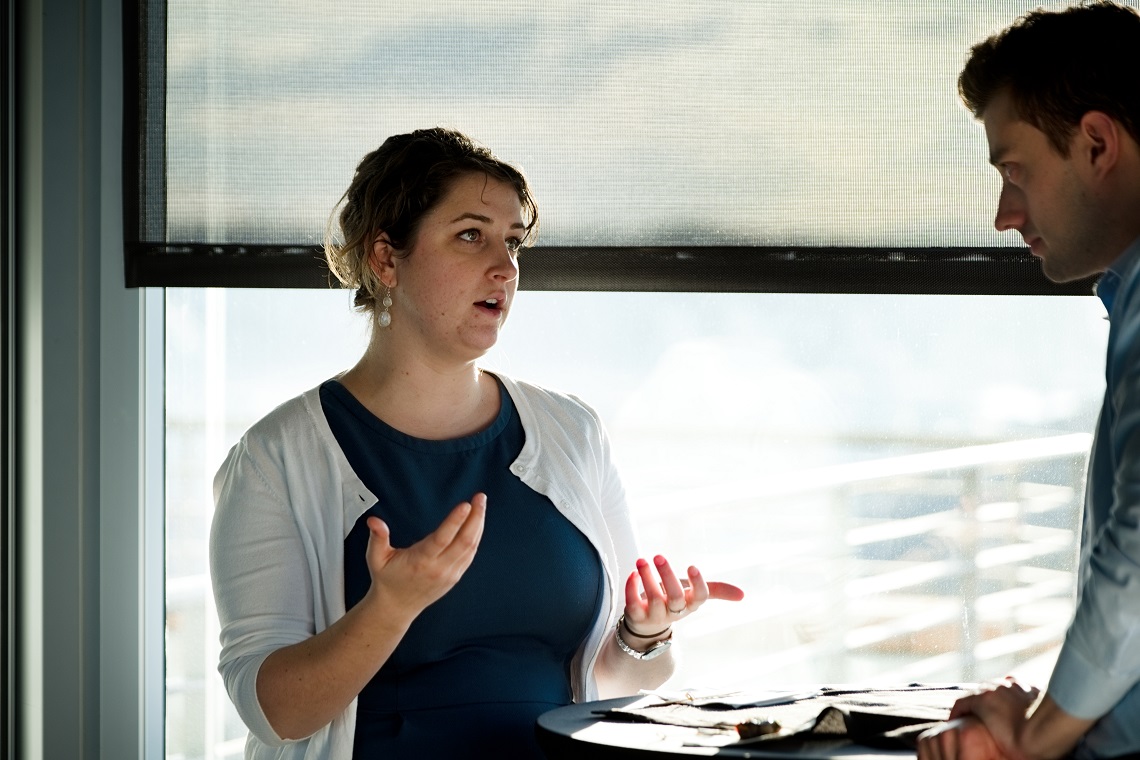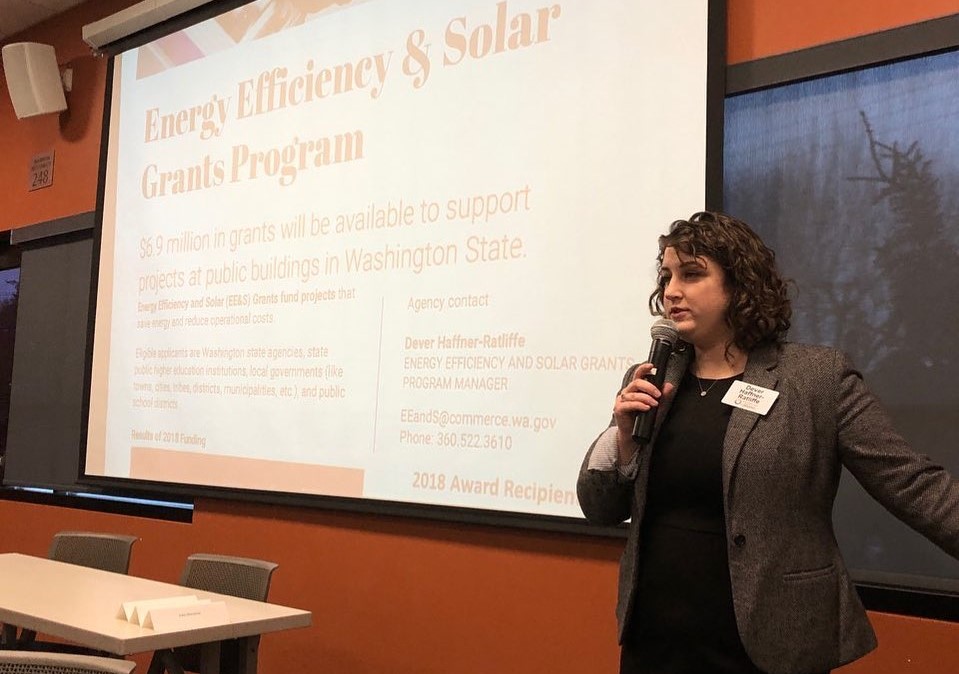Clean Catalyst
Dever Haffner-Ratliffe leads renewable energy development within Washington state government
Dever Haffner-Ratliffe (MBA 2020) likes to say that she has “the brain of an MBA but the heart of a public servant.”
This hybrid approach has served her well as she leads the Clean Energy Program for the Washington State Department of Natural Resources.
In this relatively new role, Haffner-Ratliffe attracts and coordinates clean energy projects to be built on Washington State Department of Natural Resources Trust Lands. The revenue generated from these leases contributes to schools and local communities.
“It is a really interesting intersection between renewable energy, which I have a strong background in, public service, which I have a passion for, and business, because we are trying to run the trust lands like a profitable business,” she says.
Young and green
Haffner-Ratliffe has long been interested in the economics of green industries.
While she was in high school, her father started South Sound Solar, a construction company focused on solar and renewable energy. Its success required that everyone in the family pitch in.
So, Haffner-Ratliffe’s management career started early. She worked her way up from office assistant to vice president—in charge of strategic planning, operations management, marketing, human resources, accounting, legal and logistics. By 2015, the family business had grown to 20 employees and $2 million in annual revenue.
After nearly a decade at South Sound Solar, Haffner-Ratliffe decided to take her skills to the public sector, which happened to be one of the largest employers in her hometown of Olympia, the seat of Washington state government.
She began in the Department of Labor and Industries before joining the Department of Commerce as manager of its Energy Efficiency and Solar Grants Programs.
Mutual goals
At the same time, after considering several different graduate programs and schools, Haffner-Ratliffe decided on the Foster School’s Hybrid MBA.
“Ultimately, an MBA is more in line with the type of problem solving and challenges I want to help with,” she says. “And I knew I could immediately apply what I would be learning.”
She did just that. Course concepts and classmate advice went directly into her work leading grant programs that provide more than $20 million in funding for renewable energy, energy efficiency and electric transportation initiatives.

And, shortly after graduation, she was promoted to lead a state-wide clean energy program.
In her new role, Haffner-Ratliffe leases state trust lands to viable wind, solar and other green energy companies and initiatives that have a low impact but generate high revenue—which supports local education and community development. This win-win supports Washington’s ultimate goal to be fully powered by renewable energy by 2045.
Achieving this ambitious goal will surely require partnership between business and government—two worlds she knows well, even so early in her career.
“I have seen that business and government don’t have to have the classic adversarial ‘regulation’ relationship,” she says. “There are many opportunities to work towards mutual goals and synergize efforts.”
Adapted from original post on the Foster Blog by Elise Glaser.



